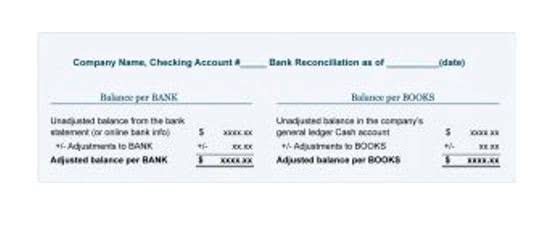The principles it espouses function as both general ethical rules and specifics for how to report financial realities. Unlike like many other professions, accounting rules have been kept predominantly private. Basically, a company or an accountant puts a bunch of numbers down on a form and expects people to understand and trust the numbers are correct. What happens if one accountant does something one way and another does something the complete opposite way? How would anyone be able to compare financial statements of two companies if they were prepared using different standards and assumptions? Non-GAAP reporting can totally change the picture of a company’s profitability.
Companies are still allowed to present certain figures without abiding by GAAP guidelines, provided that they clearly identify those figures as not conforming to GAAP. Companies sometimes do so when they believe that the GAAP rules are not flexible enough to capture certain nuances about their operations. In that situation, they might provide specially-designed non-GAAP metrics, in addition to the other disclosures required under GAAP. Investors should be skeptical about non-GAAP measures, however, as they can sometimes be used in a misleading manner.
Are all companies required to follow GAAP?
Thus, even if GAAP rules are not an absolute state requirement for accounting practices, it is required that you follow these principles in order to maintain consistency in professional business practices. After all, if a stakeholder is unable to apply guidance to a company’s financial statements, they are unlikely to work with them due to the higher exposure to risk. Accounting principles are rules and guidelines that companies must abide by when reporting financial data. Whether it’s GAAP in the U.S. or IFRS elsewhere, the overarching goal of these principles is to boost transparency and basically make it easier for investors to compare the financial statements of different companies. Generally Accepted Accounting Principles (GAAP or US GAAP) are a collection of commonly-followed accounting rules and standards for financial reporting.

Together, these principles are meant to clearly define, standardize and regulate the reporting of a company’s financial information and to prevent tampering of data or unethical practices. Since this includes increasingly porous international borders, it is vital for companies in the US to provide accounting statements that meet international standards. Currently, the International Financial Reporting Standards (IFRS) is the standard being used by most companies in other countries. For many years, the SEC has considered switching to the IFRS but now it appears that they are seeking to place some IFRS standards within the existing GAAP. While the GAAP may seem to be the perfect tool to make accounting consistent across the board, it does have its limitations.
What is GAAP vs. IFRS?
This makes it easier for investors to analyze and extract useful information from the company’s financial statements, including trend data over a period of time. It also facilitates the comparison what is gaap of financial information across different companies. Accounting principles also help mitigate accounting fraud by increasing transparency and allowing red flags to be identified.

The principle of recognition applies in this case because there is a question of how to account for this sale. That is, there is a contract that represents the account receivable, but the cash has not yet landed in the seller’s accounts. Since the GAAP relies on accrual accounting, the sale is recognized on the balance sheet and as part of the company’s overall value. However, it does not receive recognition on the cash flow statement because that sales revenue cannot yet be used to pay debts or regular bills.
Principle 8: Revenue recognition principle
Some companies may report both GAAP and non-GAAP measures when reporting their financial results. GAAP regulations require that non-GAAP measures be identified in financial statements and other public disclosures, such as press releases. GAAP helps govern the world of accounting according to general rules and guidelines.

Another key difference between the IFRS and GAAP is found in how inventory is reported and handled. Under the GAAP, companies can choose LIFO or FIFO (First In-First Out) practices as they see fit. Non-GAAP earnings are a customized version of earnings calculated after excluding earnings components that don’t require cash payments or are otherwise not important for understanding the future value of the firm. She earned a bachelor of science in finance and accounting from New York University. On the recommendation of the American Institute of CPAs (AICPA), the FASB was formed as an independent board in 1973 to take over GAAP determinations and updates.






